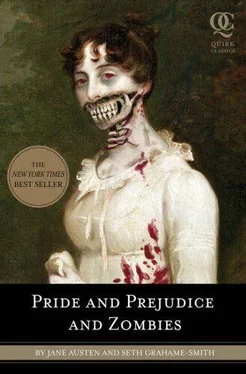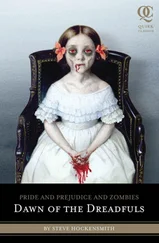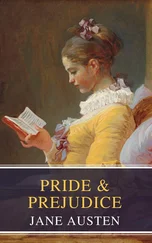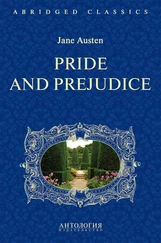“And my dear aunt,” she added to herself, as she finished the letter; “if you do not tell me in an honourable manner, I shall certainly be reduced to tricks and stratagems to find it out.”
ELIZABETH HAD THE SATISFACTION of receiving an answer to her letter as soon as she possibly could. She was no sooner in possession of it than, hurrying into the dojo, where she was least likely to be interrupted, she sat down and prepared to be happy; for the length of the letter convinced her that it did not contain a denial.
Section Six East, Sept. 6.
MY DEAR NIECE,
I have just received your letter, and shall devote this whole morning to answering it, as I foresee that a little writing will not comprise what I have to tell you.
On the very day of my coming home from Longbourn, your uncle had a most unexpected visitor. Mr. Darcy called, and was shut up with him several hours. It was all over before I arrived; so my curiosity was not so dreadfully racked as yours seems to have been. He came to tell Mr. Gardiner that he had found out where your sister and Mr. Wickham were. From what I can collect, he left Derbyshire only one day after ourselves, and came to town with the resolution of hunting for them. Mr. Darcy felt himself to blame for not making Wickham’s worthlessness more known-for if he had, no young woman of character would have dared love or confide in him. He generously imputed the whole to his mistaken pride, and confessed that he had before thought it beneath him to lay his private actions open to the world. He called it, therefore, his duty to step forward, and endeavour to remedy an evil which had been brought on by himself.
There is a lady, it seems, a Mrs. Younge, who was some time ago governess to Miss Darcy, and was dismissed from her charge on some cause of disapprobation, though he did not say what. She then took a large house in Edward Street, and has since maintained herself by letting lodgings. This Mrs. Younge was, he knew, intimately acquainted with Wickham; and he went to her for intelligence of him as soon as he got to town. But it was two or three minutes of savage beating before he could get from her what he wanted. She would not betray her trust, I suppose, without an application of severe blows about the head and neck. At length, however, our kind friend procured the wished-for direction. They were in Hen’s Quarry Street. Mr. Darcy saw Wickham, and with no want of force, insisted on seeing Lydia. His first object with her, he acknowledged, had been to persuade her to quit her present disgraceful situation, and return to her friends as soon as they could be prevailed on to receive her, offering his assistance, as far as it would go. But he found Lydia absolutely resolved on remaining where she was. She cared for none of her friends; she wanted no help of his; she would not hear of leaving Wickham, who, in spite of his abducting her, she claimed to love more than anything on earth. Since such were her feelings, Mr. Darcy had but one choice to restore her honour-to secure and expedite a marriage between she and Wickham. But the latter had no intentions of marrying, and as to his future situation, he could conjecture very little about it. He must go somewhere, but he did not know where, and he knew he should have nothing to live on.
Mr. Darcy asked him why he did not marry your sister at once. Though Mr. Bennet was not imagined to be very rich, he would be able to do something for him, and his situation would be benefited by marriage. But he found, in reply to this question, that Wickham still cherished the hope of more effectually making his fortune by marriage into a family of greater means.
Mr. Darcy saw an opportunity here, and met with Wickham again to propose a solution beneficial to all parties. Mr. Wickham, after a great deal of consideration, agreed.
Every thing being settled between them, Mr. Darcy’s next step was to make your uncle acquainted with the arrangement, and he first called in Section Six East the evening before I came home, and they had a great deal of talk together.
They met again on Sunday, and then I saw him too. It was not all settled before Monday: as soon as it was, the express was sent off to Longbourn. The terms were as follows: Wickham’s debts were to be paid, amounting, I believe, to considerably more than a thousand pounds, plus another thousand per annum to sustain him. In return, he would marry Lydia, thus restoring her honour, and that of the Bennet family. Second, he would allow Mr. Darcy to render him lame, as punishment for a lifetime of vice and betrayal, and to ensure that he would never lay another hand in anger, nor leave another bastard behind. To spare what little of his reputation remained, the injuries would be attributed to a carriage accident. Finally, he would pursue the priesthood, in hopes that the teachings of Christ would improve his general character. Darcy personally saw to it that all of this was attended to with the greatest expedience. (I dare say he took particular pleasure in beating Mr. Wickham lame.)
I fancy, Lizzy, that stubbornness is the real defect of his character, after all. He has been accused of many faults at different times, but this is the true one. He insisted on shouldering the entire burden himself; though I am sure (and I do not speak it to be thanked, therefore say nothing about it), your uncle would most readily have settled the whole.
He and your uncle battled it together for a long time, which was more than either the gentleman or lady concerned in it deserved. But at last your uncle was forced to yield, and instead of being allowed to be of use to his niece, was forced to put up with only having the probable credit of it, which went sorely against the grain; and I really believe your letter this morning gave him great pleasure, because it required an explanation that would rob him of his borrowed feathers, and give the praise where it was due. But, Lizzy, this must go no farther than yourself, or Jane at most.
The reason why all this was to be done by him alone, was such as I have given above. It was owing to him, to his reserve, that Wickham’s character had been so misunderstood. Perhaps there was some truth in this; though I doubt whether his reserve, or anybody’s reserve, can be answerable to anything so scandalous. But in spite of all this fine talking, my dear Lizzy, you may rest perfectly assured that your uncle would never have yielded, if we had not been convinced of Mr. Darcy’s having another interest in the affair.
When all this was resolved on, he returned again to his friends, who were still staying at Pemberley; but it was agreed that he should be in London once more when the wedding took place, and all money matters were then to receive the last finish.
I believe I have now told you every thing. It is a relation which you tell me is to give you great surprise; I hope at least it will not afford you any displeasure. Lydia came to us; and Wickham, newly lame, was carried to the house to recover, and to be fitted for his traveling bed, which Mr. Darcy generously paid for. I would not tell you how little I was satisfied with your sister’s behaviour while she remained with us, if I had not perceived, by Jane’s letter last Wednesday, that her conduct on coming home was exactly as reprehensible, and therefore what I now tell you can give you no fresh pain.
Mr. Darcy was punctual in his return, and as Lydia informed you, attended the wedding. He dined with us the next day, gave his congratulations to the new couple, and took leave. Will you be very angry with me, my dear Lizzy, if I take this opportunity of saying how much I like him. His behaviour to us has, in every respect, been as pleasing as when we were in Derbyshire. His understanding and opinions all please me; he wants nothing but a little more liveliness, and that, if he marry prudently, his wife may teach him. I thought him very sly-he hardly ever mentioned your name. But slyness seems the fashion.
Читать дальше












